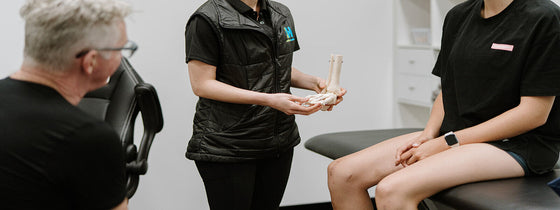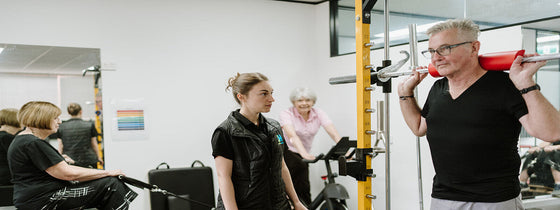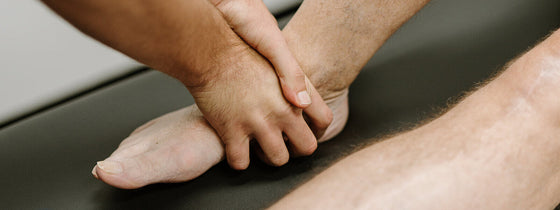What is menopause?
Menopause is a natural process involving the cessation of a woman’s menstrual cycle (period) and, as a result, a huge cascade of body processes and hormonal changes. It can also be prompted by surgical removal of a woman's reproductive organs.
At this time, the hormones oestrogen and progesterone, which help regulate a woman's cycle, significantly reduce. What many women may not be aware of is how these changes influence their body! Oestrogen in particular can help to regulate energy, emotions, bone health, weight, pelvic muscles and cardiac health - so it's pretty important! Below are some changes that may be experienced throughout this process, and how physiotherapy can help.
Bone Density
As a woman stops producing oestrogen, her bone density decreases...quite significantly! This makes us more susceptible to bony conditions such as osteoporosis, and it also increases our risk of breaking bones.
How can physiotherapy help with this?
A tailored exercise program for bone health that includes strength, weights and impact training has been shown to optimise the integrity and overall health of bones. Your physiotherapist can help work with you to come up with a specific exercise program to mitigate this during menopause and beyond.
Cardiovascular Changes
As oestrogen lowers, the regulation of our good and bad fats reduces and changes to our metabolism may occur as a result.
How can physiotherapy help with this?
Your physiotherapist can help you plan your physical activity, or even create an exercise program for you to complete at home or the gym. Through regular physical activity, positive systemic changes in our body occurs, which can help with our regulation of fats and naturally improve our metabolism. The Optimal Health Lab offers group classes, which may also be a fantastic option to increase physical activity levels and get you moving!
Sleep alterations and general energy levels
Sleep hygiene is becoming more and more talked about in science today, with plenty more research yet to come! Our sleep can be a result of lots of different factors, and evidence shows our exercise levels can contribute to our quality of sleep too.
Again, working with your physiotherapist can help plan your physical activity that best suits your lifestyle, while potentially providing advice on sleep hygiene habits if they are contributing factors.
Dysfunction of pelvic floor muscles
Our pelvic floor muscles play a significant role in the prevention of prolapse and incontinence of both our bladder and bowel. It is extremely common to experience leakage or even an overactive bladder, and physiotherapy can help to assess and strengthen these muscles and prevent leakage. If incontinence is an issue for you, your physiotherapist is here to help!
There are also a range of other symptoms that can accompany the above factors during menopause, including:
So, how do I know if I am experiencing menopause?
It’s not always easy to confirm that menopause is taking place - especially if you are currently taking the Pill or have started Hormone Replacement Therapy to relieve peri-menopausal symptoms. It is important to talk to your doctor, as they will evaluate your menopausal status according to your symptoms, pattern of periods, and medical record.
Here at OHL, we want you to feel on top of your health and in control when going through this significant stage of life. When it comes to menopause, movement is medicine! We are always here to discuss any questions, and work with your GP or gynaecologist for optimal results during this time.

If you're experiencing back or neck pain with neurological signs and symptoms, a thorough neurological examination is crucial for accurate assessment and effective treatment. In this Optimal Tip learn more about what we mean by completing a neurological exam!

Squats, deadlifts, and calf raises are key movement patterns that should be part of every strength and conditioning program—regardless of age and activity level. These functional movements support joint health, improve posture and balance, and reduce the risk of injury while building strength where it matters most.

A ganglion cyst is a fluid-filled swelling that typically forms over a joint or tendon sheath, causing discomfort and pain, especially when pressing against nerves or joints. Proper assessment and treatment, including physiotherapy, are essential for managing symptoms and improving function in the presence of a ganglion in your hand, foot, or wrist.